Mr Musa and the death
Every morning Mr Musa is sitting at the table of a little Thaifamily guesthouse. He is sitting alone, his eyes are in searching mode. Whenever you look at him he uses the blink of an eye to make a short contact of sharing something like “Good Morning. Nice sky”.
One morning he comes to my table and after talking about temples in India, he asks me if I wanna go for a walk with him to the river bank. While walking he tells me that he likes this area so much, because it has so much life in every corner. An alive atmosphere. I understand him very well. 2012 I visited this place for the very first time. I was travelling to Asia for the first time and I was alone.
Alone with a broken heart. I went for long walks with this thing in my chest that felt like an overcooked Tofuthaicurry with mashed and burned pieces and I was driving around in the Karma Taxi searching for something, searching for myself. The Karma Taxi story is here.
Since then I managed to get my heart to be whole again with some burned areas, that sometimes still feel old pain, but in general my heart is much more at peace. Now we go for a walk with Mr Musas heart. It seems to be that in the last years nothing has changed in this khet, one of the 50 districts of Bangkok. The hustle on the market, the Thaimamas behind their food stalls, the kids in schooluniforms buying sweets and laughing excitedly, the dried chilis bedded on the pedestrians, the cats that are sitting in front or on ricesacks, singing birds on the power cables that are decorating the streets, the smell of incense, fish and oranges, paper lanterns hanging in the rustling trees and the chants sloshing from the temples at sunset time. But since 2012 everything has changed here. Everything.
Mr Musa and I we buy pink noodles, peanuts and spouts and sit at the banks of the river. In ten minutes the food will be in our stomachs that breaks it down and then it will go into the earth again where we all come from. Observing the flowing water makes clear that all is in constant move and hence in change. The floating plastic bags fall into particles, these particles are getting eaten by the fish that maybe choke or it got caught by the fishers and land on the grill or it just dies a natural death. The fish will die as we are all going to die. The german artist Perel is singing in her song “Alles” /All – “A house, a fence, the bird chokes, the time, the space, nothing comes back. On a yard, a heart is breaking. Everything that was, will never be again and everything that is, is always over.” Nothing stays the same, but despite we want to stop time and hold on to people, stories and stuff.
„This moment shall never end“, we hear us saying. “This love should never stop” we wish. We swear we will stay together forever until death separates us. Some of us are sticking to the promise and seeing through to the finish, others take the exit earlier. Going somewhere with someone else. That’s life. Who does not accept and let go, will be suffering. Again and again. A lot. On my journey I got to know the concept of attachment and detachment. It is an essential part of the Buddhist teachings and of the Yoga Philosophy, the Yoga Sutras of Patanjali.
To suffer less, it is highly recommended to learn how to love and how to detach at the same time. This kind of relating is a challenging art.
Who has spent his life over decades with one person, cannot let go easily. In my opinion it is natural that it is very hard to say bye bye and to let go. It happens that over the time while living together, raising children, building things .. two butter halfs melt together into one sandwich and become a symbiotic something.
And while facing the fact of impermanence, that death will separate the merged butterhalfs again, it is important to learn to stay one whole person in a relationship. Always. It is good to learn to love and to detach at the same time and practice it while the person is still alive. You do not love less with detachment. You can turn on your heart full power.
(On my journey through the world and also through the spiritual scene I often saw this concept of detachment misunderstood or abused. People take it as an excuse for not having stable relationships anymore and instead they run from one person to another. In the Touch & play & next one mode. I saw loneliness and disconnection. Detachment is not meant to function as an excuse for intimiacy issues. Here one should examine the relationship with oneself of course alone for a while.)
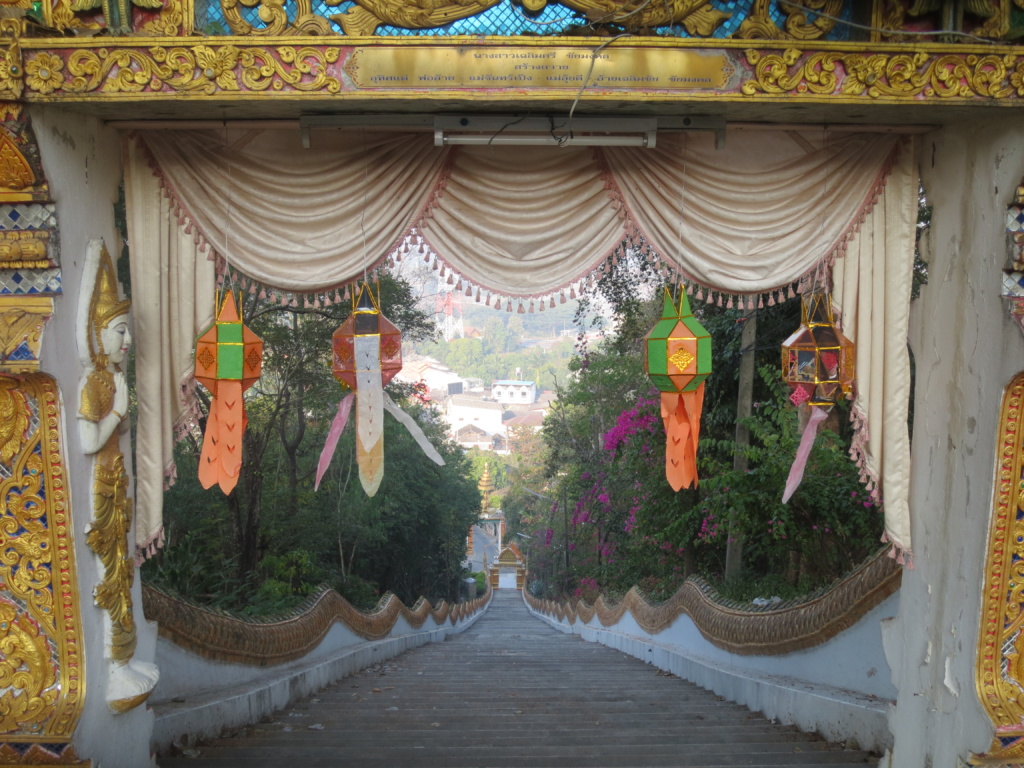
We all walk the way over the bridge alone and with that we are no alone. When we get this then there is a chance for getting true connection with others.
Our life is like a bridge. With beginning and end. In the middle of the bridge we kind of “stop”. We build a house, start a family and or build a career and are very attached to our jobs, because society gives us the message of being exchangeable in every moment. So we cling to it. We buy clothes, more clothes, technic more technic, new technic, the latest hot shit and meanwhile ignore that this will end. It can end in five minutes, tomorrow or next month.. It will definitely end in some decades. We cannot escape this fact. Like a stubborn donkey we do not wanna leave the middle of the bridge, we do not wanna move towards the end. We retousch our pictures, get some botox in our face, trying to ignore the fact that our body, what is an accumulation of living cells, is growing older in every second. Whatever we do, whatever we cling to, we are heading towards the end. The law of impermanence, also known as anicca, is not making an exception for us. I know it is f*ng scary, but death it is part of life. Jessica Walker a theatre director from Barcelona says: “Nacemos, crecemos, nos desarrollamos para desaparecer.“ – „We are born, we grow, we develope to die.“ On her festival in India we did a death meditation, it was the most impressive week on my journey – you read the interview after a longer german text here.
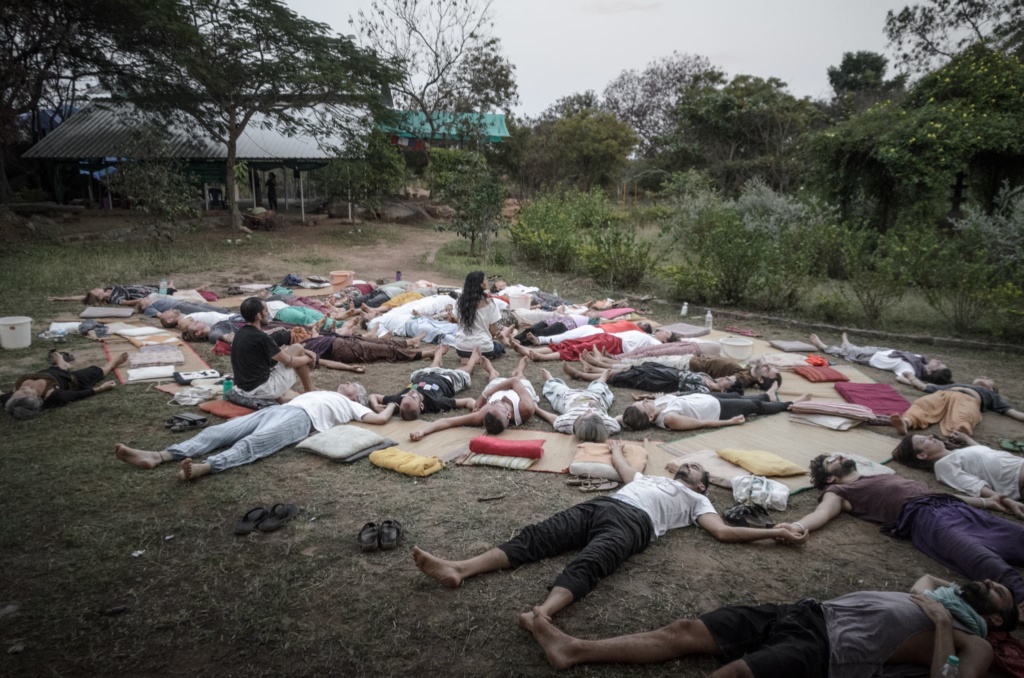
Death Meditation with Jessica – Photo by Gonzalo Santos – https://gonzalosantos.com.ar
We did the meditation to get used to the fact that we all die. Whenever something that we love ends or death is hitting us it is always to early. That is why Buddhism is teaching us to live in the present moment. And get involved in life and look who is next to you. On the train, at work, at the restaurant, in the yoga course, in the doctors waiting room. Talk to people especially to the older ones, listen to them and cultivate loving kindness. Also for the ones who are like a cactus on bad drugs – they lack of love!
I return with Mr Musa to our guesthouse. The next morning my room neighbor Heidi, a dutch artist, tells me that she met Mr Musa one week ago in the streets. He seemed lost. He spoke to her, walked with her to her guesthouse and asked if she could live there comfortably. She answered “Yes of course. This is a simple, clean and friendly place, runned by a Thaifamily”. Mr Musa, who belongs to the upper class, as he is a doctor from Malaysia, was living in a luxurious Five Star Hotel in Bangkok. Some moments later he left it and moved into the small simple guesthouse. He told Heidi that his wife died two years ago and since then he is lonely. He misses her so much. Everywhere. His feeling of loneliness got more intense in the atmosphere of the Five Star Hotel. Nobody talked to him, to the older solo male traveller that looked sad. Many people do not like the smell of sadness. I remember when I was alone nearly 7 years ago in the streets of Boston and cried as if the world would die, crying in the metro, in the bus to the airport, at the airport…nobody spoke to me. People were irritated by so many tears and so much sadness. Instead of being irritated and talking to Mr Musa people in the Five Star Hotel lobby in Bangkok where dressed up like on commercial advertisement posters sitting at the bar and starred at their smartphones and ipads. While Heidi is telling me this and I start getting tears in my eyes again, Mr Musa comes back from the market for having lunch with the guesthouse family. He joins their prayers. Seeing him in this gentle community he looks at peace. The permanent absence of his dead wife is having a break. In this very moment Mr Musas heart is able to let her go without stopping loving her.
Mucho Love, Yvi

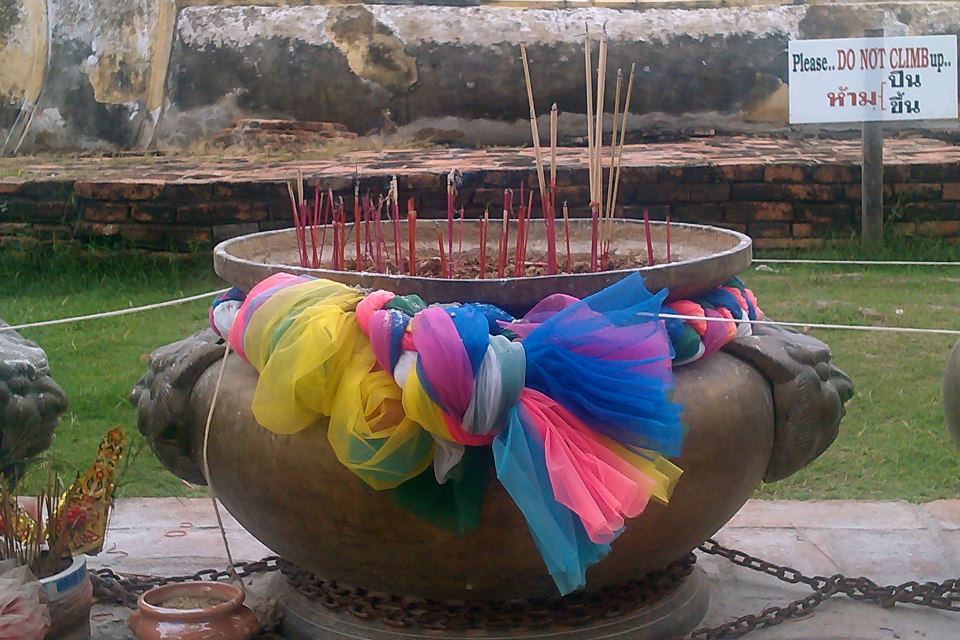
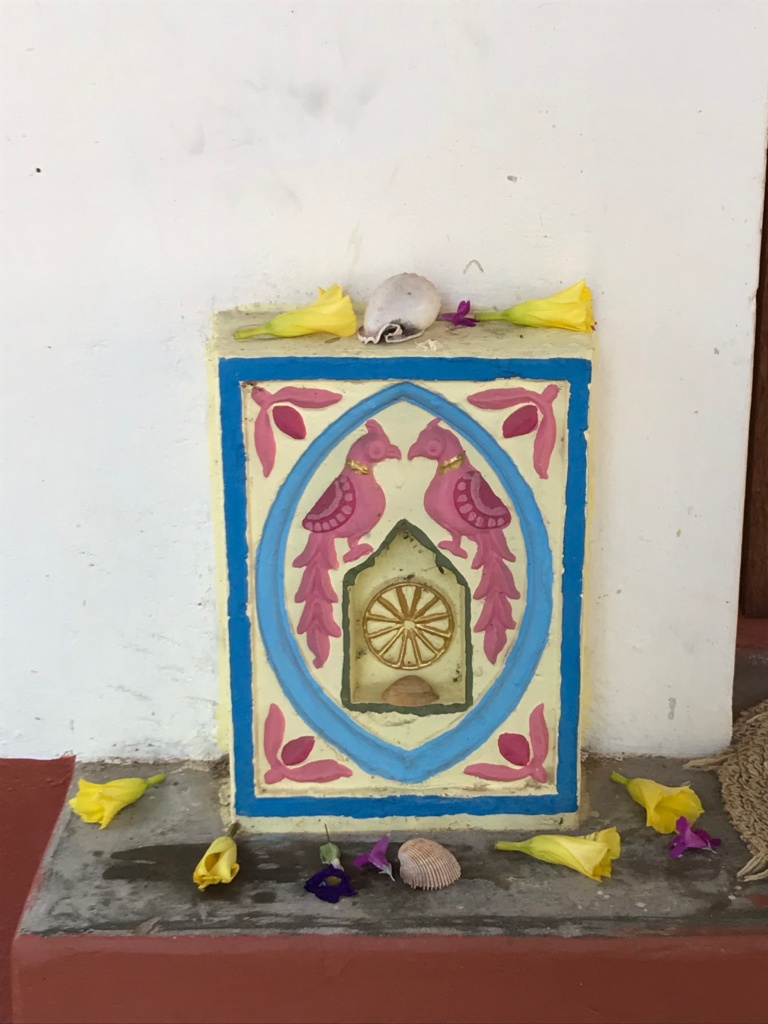
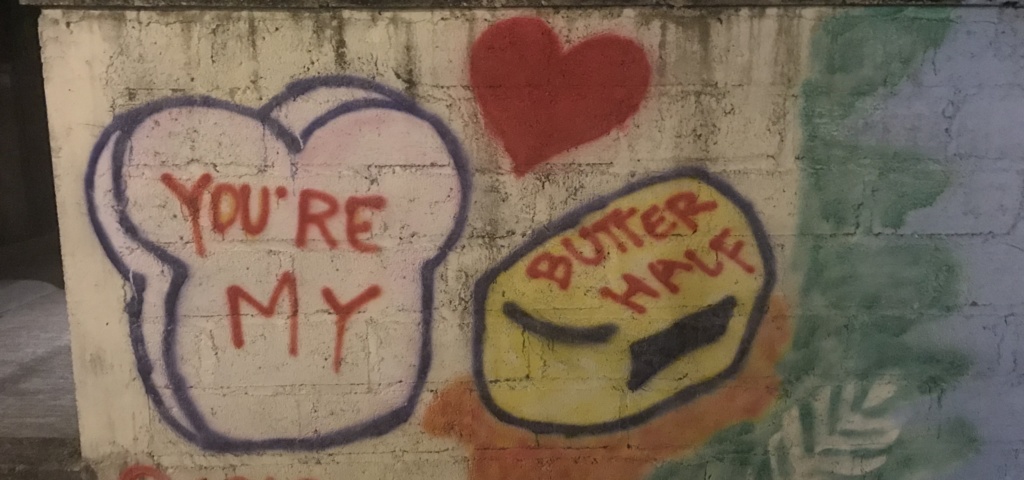
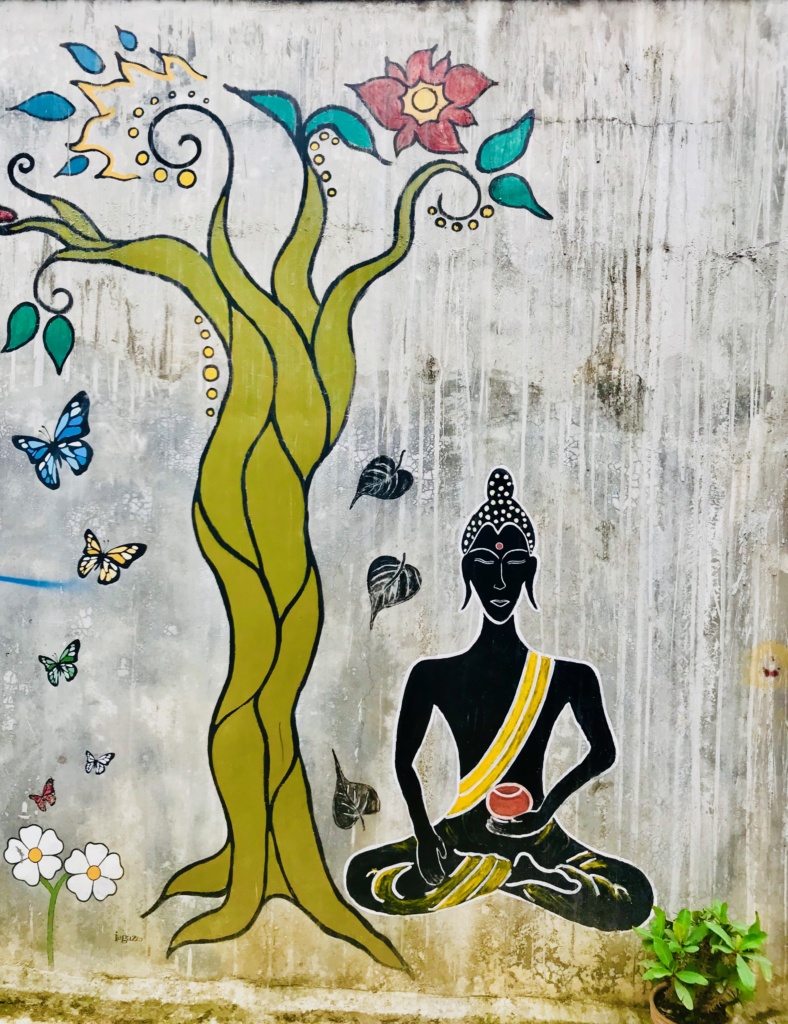
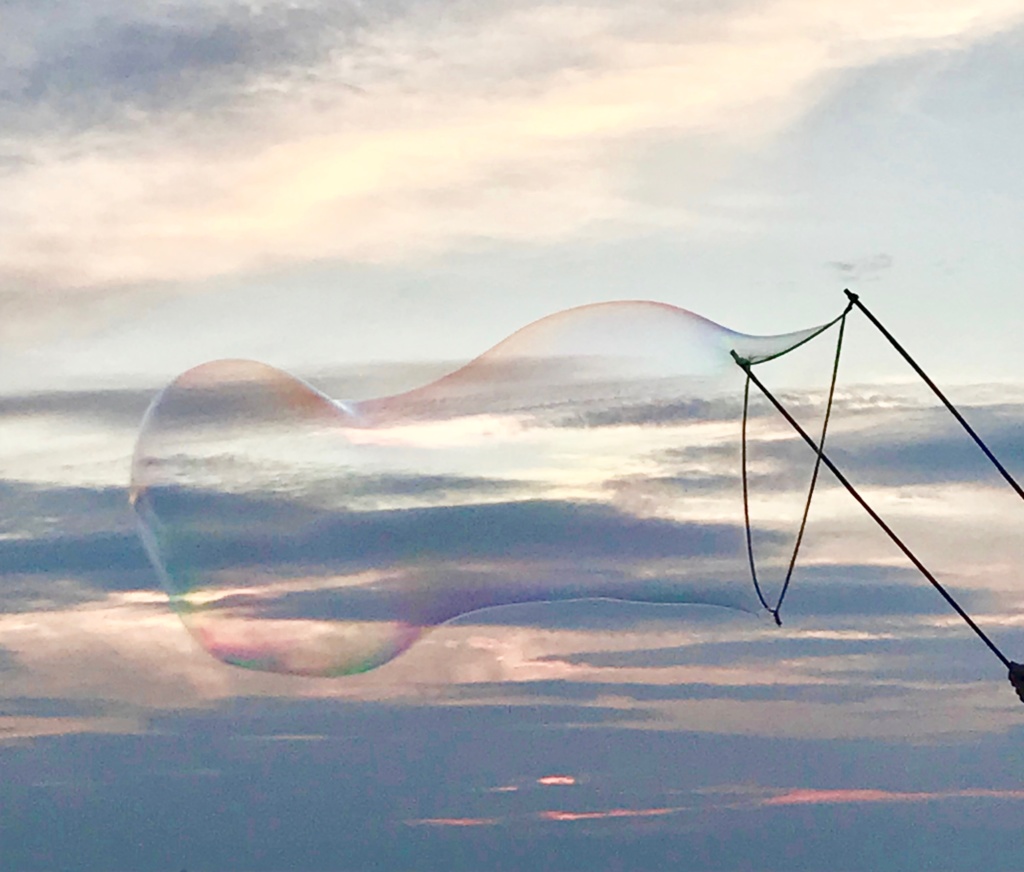
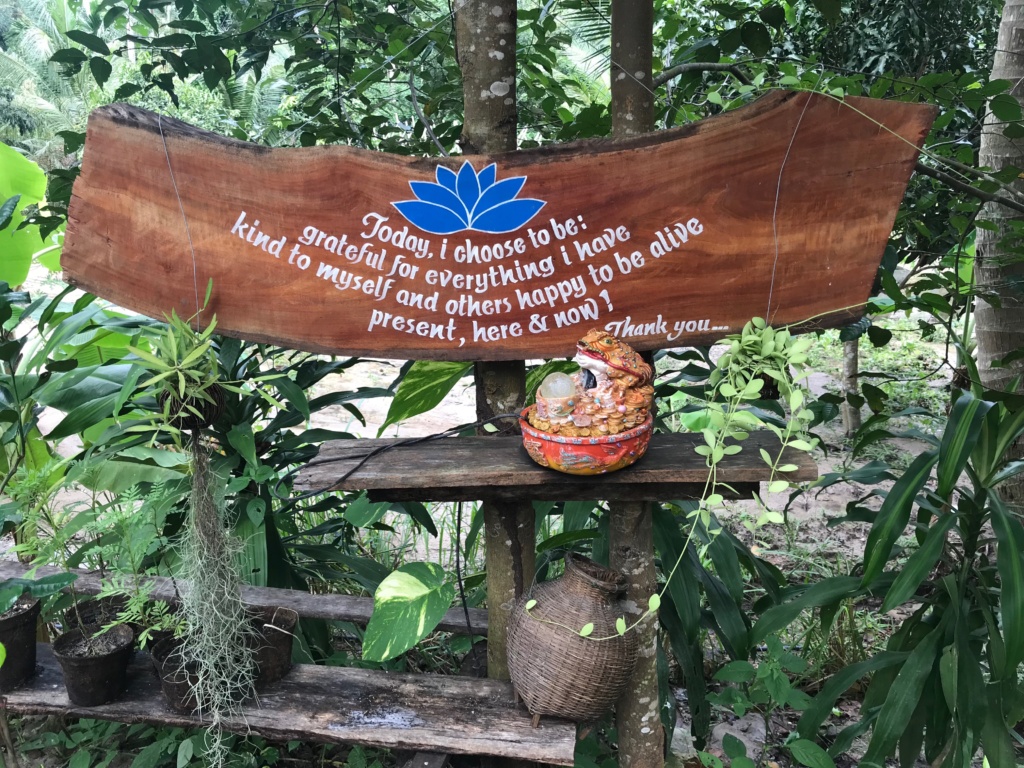
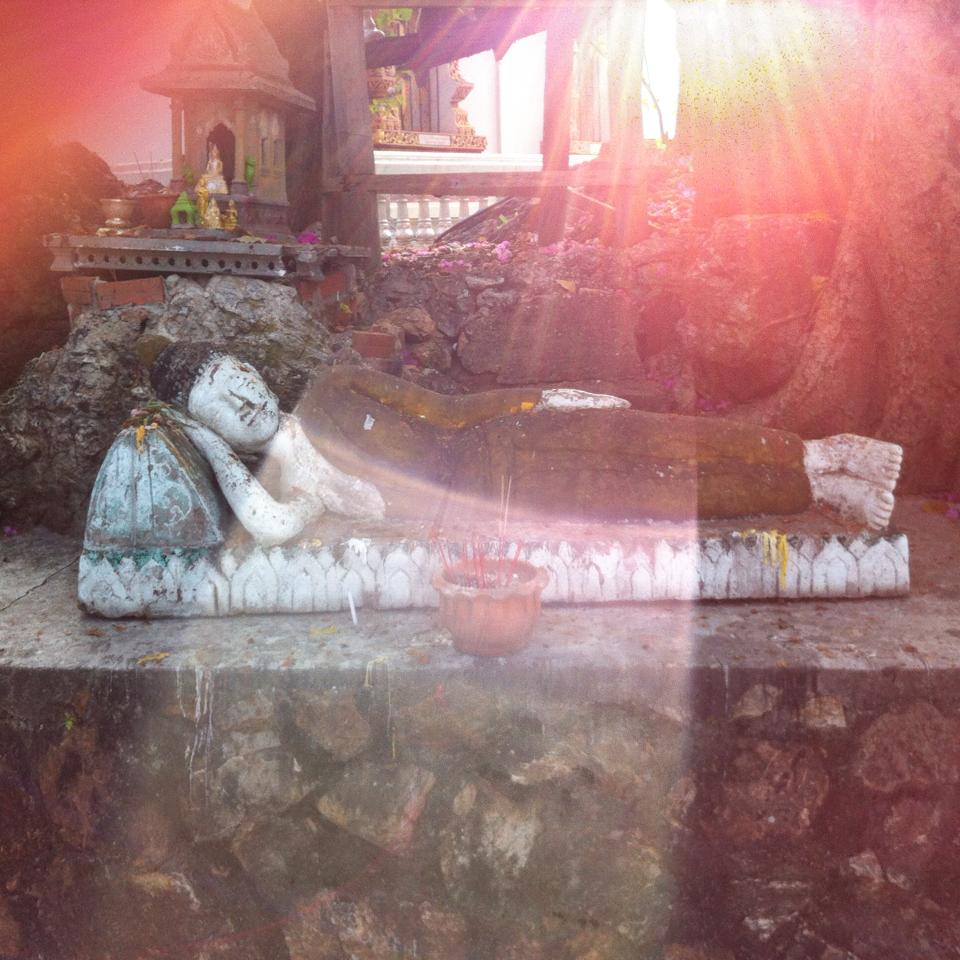
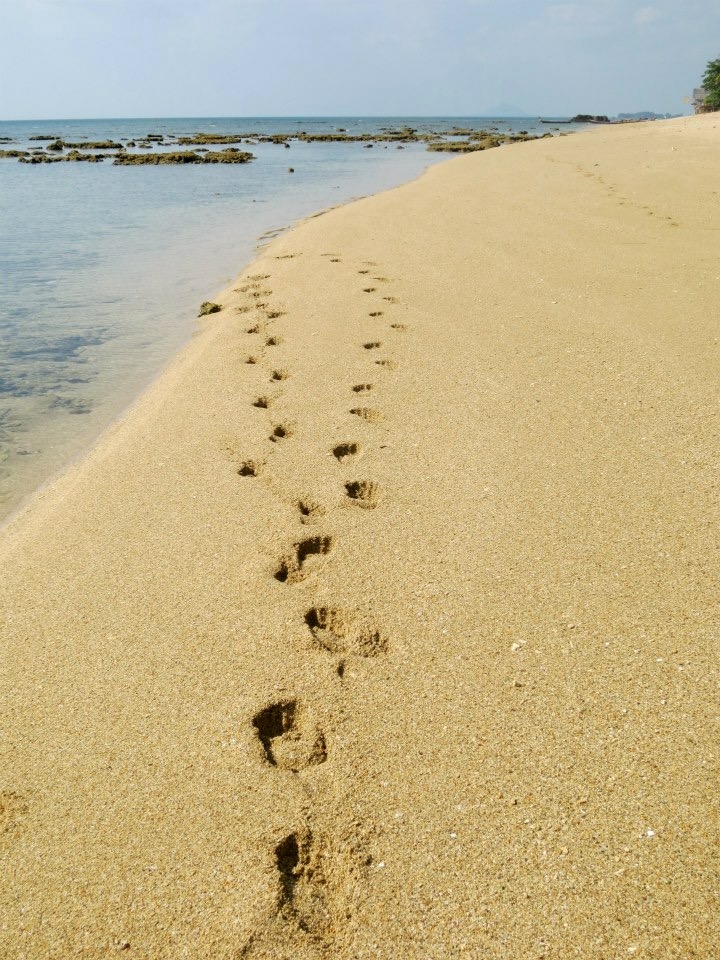
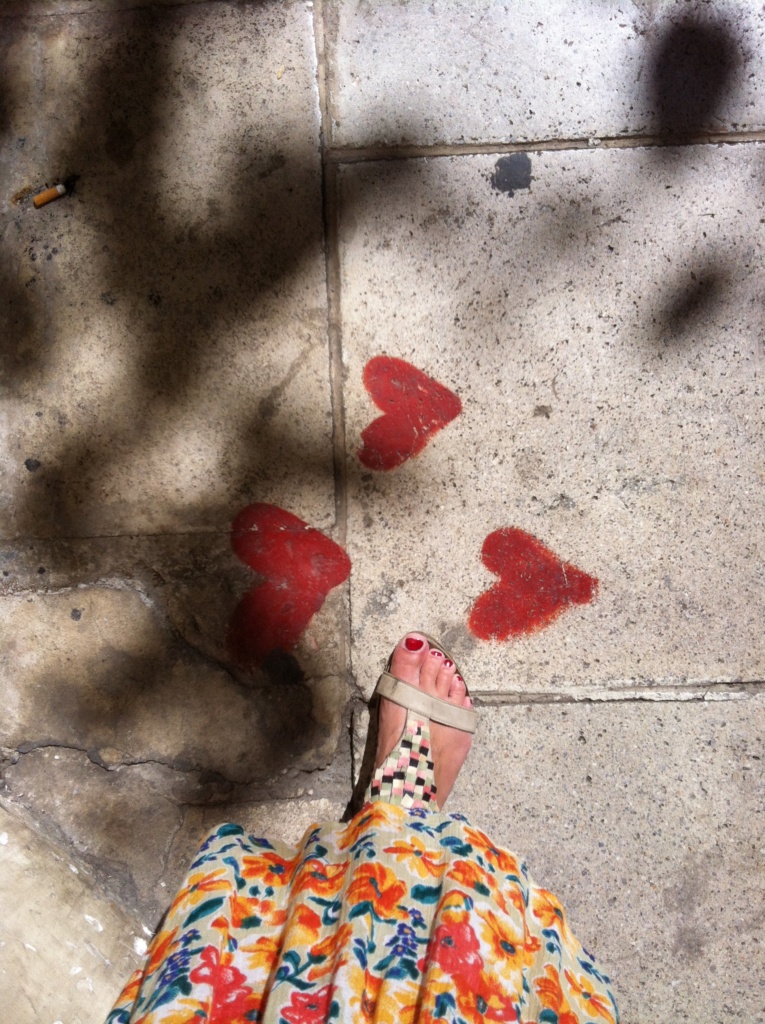
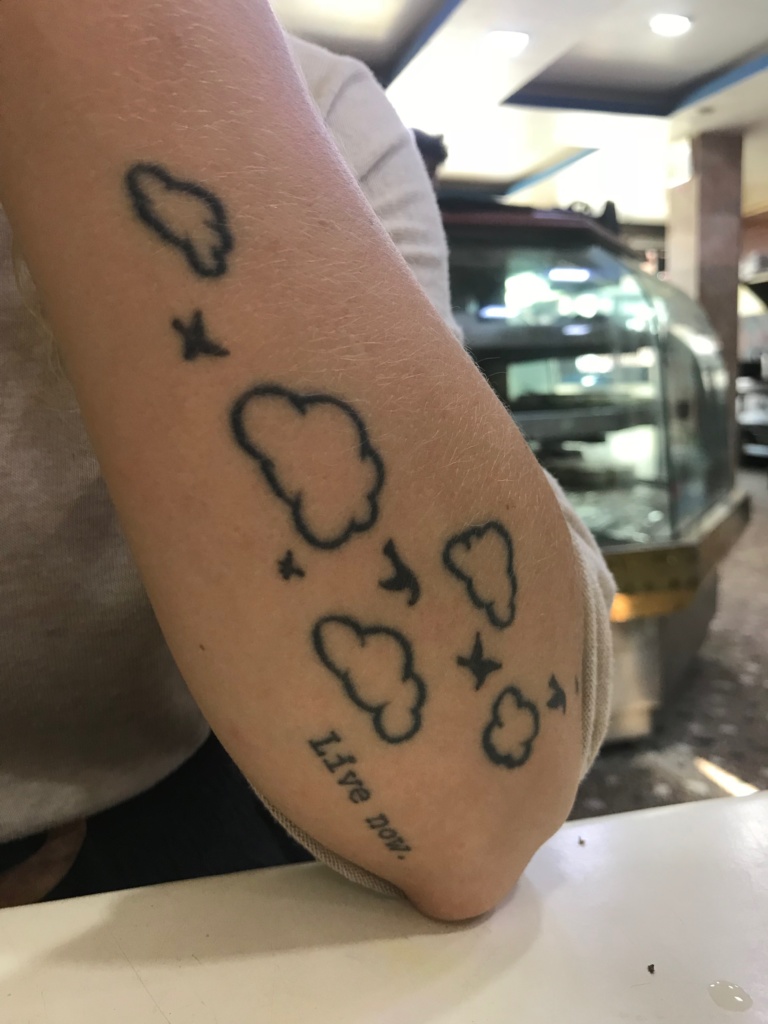
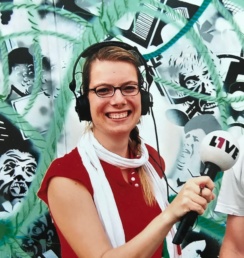
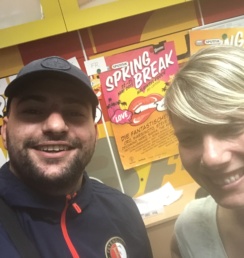
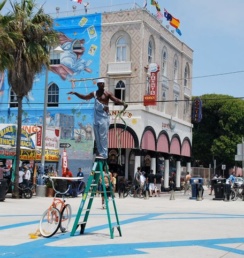
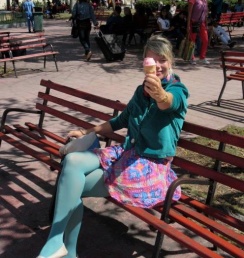
Schreibe einen Kommentar